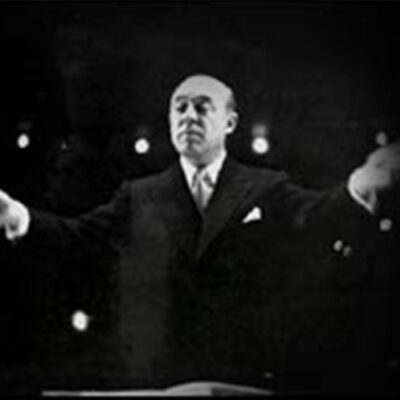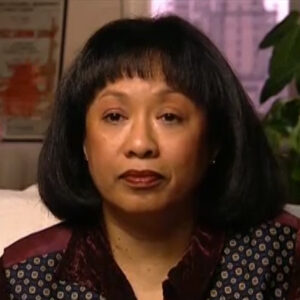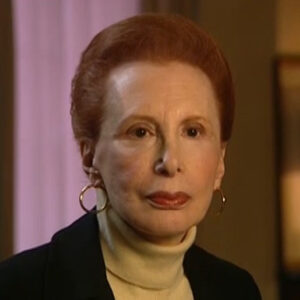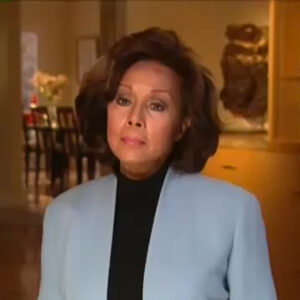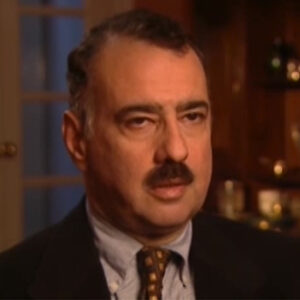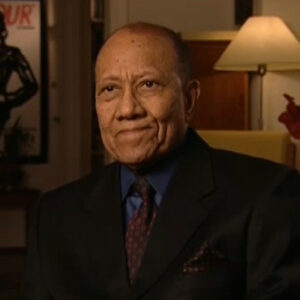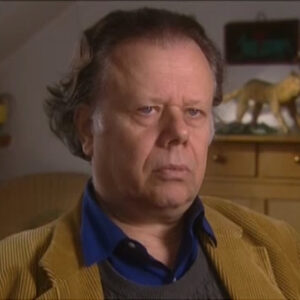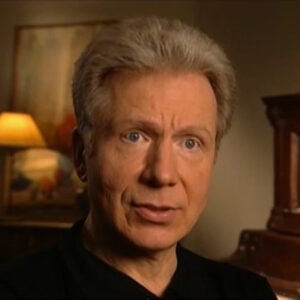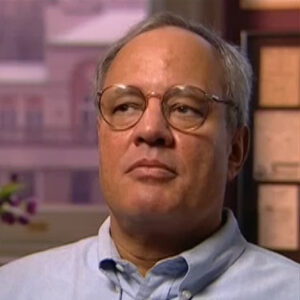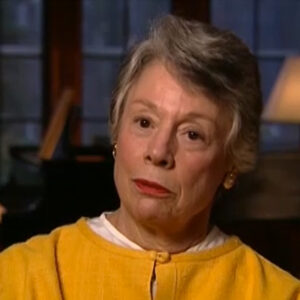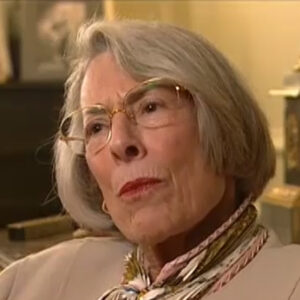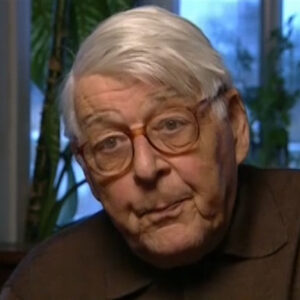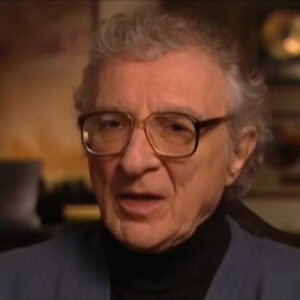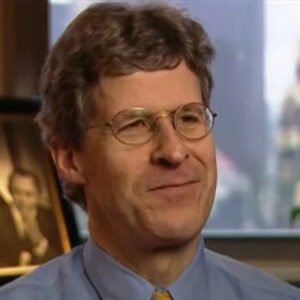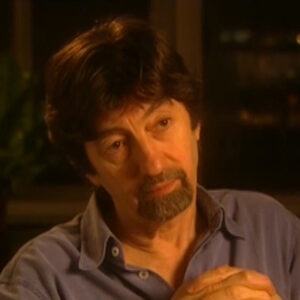Speaker 1 In Los Angeles, tell me what first brought you to New York and why did you have any expectation of moving there?
Speaker 2 Well, I had we had a habit of going to New York every summer, my parents and I on a summer holiday. And I was always able to sing. I was singing and all of the high school productions. And, you know, I had had a scholarship at the Pittsburgh Playhouse. So I knew I wanted to be a singer. I wanted to sometime do that. But my big dream was to become a veterinarian. So I was on my way to college this particular time. This was July and I was going to college in September and my parents took me to New York and I knew a pianist there by the name of Ken Welch, who later did The Carol Burnett Show with his wife, Mitzi. They wrote the show and I called him and we started to sing and he said, I would like you to why don’t you sing for an agent friend of mine? Just see what you got here before you go off to school. And he called the agent. I sang for the agent. And the agent in turn said, why don’t you just stay and do one audition, one professional audition, since I’d never audition for anything. And that audition just happened to be Richard Rodgers, Oscar Hammerstein, casting director. And the rest is history, as they say. So I can go on if you would like, OK?
Speaker 1 OK, tell me the circumstances of your first meeting, Richard Rodgers, and then actually doing I assume there was an audition for him.
Speaker 2 I first met Richard Rodgers. It was at the Broadway theater where they had open auditions every week to replace chorus people in their shows. I think at that time, Richard Rodgers and Oscar Hammerstein had at least three shows running on Broadway. And of course, their shows ran for long periods of time. And so every week they would have to replace chorus people who were constantly leaving the show and anybody could get their music and the pianist and go in and audition for the casting director. Well, this is my very first professional audition, and I got my music and waited in line with everybody else, got to the to the stage and sang and the casting director, whose name was John Fernleigh, who was with them for many years. Asked me what I’d done, you know, where I was from, the usual questions, and of course, I said nothing, which was the truth, and I was just 18 years old. And he said, well, let me ask you, do you have some time? And I said, yes. And he said, Well, Mr. Richard Rodgers happens to be across the street rehearsing his orchestra for Oklahoma, which was about to go out on the road. They would send out road tours. It was opening at City Center then and then going out on the road again. And he said, I would like him to hear you personally, sort of just take a few moments. And he said, I’ll call him in. Well, he went over and got Richard Rodgers, and that was my very first meeting with Mr. Rogers. And he walked in and I had known about him, of course, because my very first show, Broadway show to ever see in Pittsburgh, which is where I’m from, basically was Oklahoma, a production of Oklahoma. And I was very excited. And he came in and he asked me my name, where I was from, the usual questions, and he said I would you would you like to sing for me? And I said, yes, I guess so. And you understand this is the very first time I’ve ever done an audition of any kind. I sang for Richard Rodgers and then he said, listen, I’m going to call my partner, Oscar Hammerstein and have him come and hear you, he’s at home, he said, can you wait for Oscar to arrive? Well, my pianist at the time, it was a Thanksgiving weekend. And he said, Shirley, I hate to do this to you, but he said, I have to leave. I have an airplane to catch. Well, Richard Rodgers said, it’s all right. He said, we have a full orchestra across the street. And it was the City Center Symphony. Now, I had never sung with a symphony, you know, a piano was about it for me at that point. And I said, well, I don’t know whether I can do that. He said, well, let’s wait till Oscar arrives. Oscar arrived. Asked me the usual questions once again, and he said, do you know the score of Oklahoma? And I said, Well, I, I know the music. I don’t know the words. Of course, I’m talking to the lyricist now, you understand? And Richard Rodgers said, never mind, we’ll give you a score and you can stand up there and sing with the full city center orchestra for Oscar Hammerstein. Took me across the street with them. I was you know, everybody said, weren’t you terribly nervous? Weren’t you terribly excited? I was so young and so naive. I thought this was the way it worked. I thought this happened to everybody. You know, this. Oh, this is easy. You audition for Rodgers and Hammerstein, you get a job. Is that the way it works? Of course. Little did I know. I didn’t realize until much later that that’s not the way it works normally. And I went across the street, held the score, shaking and sang. People will say we’re in love. Oh, what a beautiful morning and Oklahoma. And then Richard, Richard Rodgers was basically the spokesperson of the two. You know, I think, you know, behind the scenes, perhaps Oscar made a lot a lot of the decisions, really. But but Richard was the one that had the mouth, as we said, you know, he was the one that that talked everybody Oscar sort of laid back. And so he came up to me and he said, listen, we’re thinking of something very special that I won’t discuss with you today. But he said, we have a place for you in the chorus of South Pacific. And he said, I would like for you to join one of our shows. He said, if you’ll stay here for the next couple of weeks, if you can and watch the show, and then you’ll go in as one of the nurses in South Pacific. And that was my first meeting with the great Richard Rodgers. And and two weeks later, I was in the course of South Pacific and never got to college. Interestingly enough, my parents I’m an only child. And, you know, in today’s time, I have three sons of my own and I was really pushing, pushing, pushing college. I never got them to college either, by the way. But my parents were very understanding, amazingly so, to be at that particular time and to have an eighteen year old daughter who wanted to stay in New York City. You know, when I look back on it, they they were all for it. They said, you can always go to school, but you’ll never have an opportunity like this. And I was the one that was kind of edgy about it. I wanted to go to school. I thought maybe this was the wrong time for me. I wasn’t ready, you know, and I was scared, obviously. But finally, the agent signed me to a contract. And Richard Rodgers then said, asked if I would go under personal contract to he and Oscar Hammerstein, I was the first and last one and only ever to be under personal contract. The two gentlemen. It was a five year contract. And under that contract, I did two motion pictures for them and a stage production.
Speaker 1 Fantastic. I’d love to know how much you made during that time, that first that first contract, so that put that in your answer and tell me if he ever gave you any direction, if he was ever there while you were starting to rehearse, if it was ever around waiting for Joe to recover. Do you need water, Joe?
Speaker 2 Yeah, he did.
Speaker 1 Yeah, that’s lovely. You’re rolling. So tell me how much you made and tell me whether there was any interaction with Mr. Rogers and what did you call them?
Speaker 2 Well, the show that I was about to go into was a show called South Pacific, of course. And the one great thing about that being my very first show on Broadway is that it was what we called a white contract instead of a pink contract. A pink contract meant you were in the chorus. You had nothing to say. You were a singer, you were a dancer. And at that time, of course, people made 85 dollars a week. If you had a white contract, which is what I had, because I had one line and this is my first show, and if you had something to say, be it one line or thirty lines, you had a white contract and that was 200 dollars a week. Now, that was a lot of money then. An awful lot of money. And I was very excited because I was making 200 dollars a week in the chorus of South Pacific. And it was the last six months of the show on Broadway. Mary Martin was no longer in the show, nor was it your Pinza. It was it was Martha. Right. And George Britten. But playing the leads. And my one line was, what’s the trouble, knucklehead, with my one line, my very first line on Broadway stage. Richard Rogers had a marvelous attitude and feeling toward his people in in this show, his actors, and one of the things that he was adamant about and really adamant about is that you did not improvise his music. You had to sing it as as it was written. And this was a very strong feeling that he had. So every single week I was in the last six months of the show, every single week, Richard Rodgers would come to the theater at seven thirty and at least once a week, sometimes twice, sit at a piano and everybody would have to gather round the piano and he would play the entire score and we would have to sing it as written because he said, you’re getting lax. You’re getting it’s not the way I wrote it. We will go over it again and again and again. And he was adamant about that. You know, he couldn’t stand singers that would try to do their own thing with his music. And and so it was interesting that he that he felt that way and took that kind of time and put that effort into keeping his shows so exact.
Speaker 1 Was there any contact with him during those last six months or was can you tell me what of any stories?
Speaker 2 Well, actually, I didn’t have then any personal can’t really contact. But that very first day when I did the audition, I think I may have said this to you, but he he said, surely we have something in mind for you in the future. We can’t talk about it right now, but we will get to it a little later. Well, during that six months, I found out that they were going to do the production motion picture production of Oklahoma and. He finally called my agent and he said, now we’re ready to talk. We would like Shirley to audition for the lead role in the motion picture of Oklahoma. The director, Fred Zinnemann, who was the director going to be the director, and and Arthur Hornblower Jr., the producer, were flying in from Hollywood. And we would like Shirley to come up to the Rodgers and Hammerstein office and sing and read for them. This was the thing that we’ve been thinking about since we met her that very first day. And I was still in Pacific. And at that point they had another show called Me and Juliet, which had been playing on Broadway. It was one of the sort of the lesser of their their hit shows. And they were about to send a production out on the road. And they said, we want Shirley to audition for the for the movie, but we want to keep her with us. So we would propose to give her the role of Juliet in the in the road company of and Juliet. Now, that was a featured part because the show was about a show within a show and Juliet was the star of the show within the show. So I had one song and but he said we would also like her to understudy the lead, played by Isabelle Bigly at that time. Well, I prepared and went up to the Rodgers and Hammerstein office, I remember that office so well to read and sing for Oklahoma and I did, and they loved the audition. They said it was wonderful. But I came to find out later that they felt that I was just too inexperienced to handle a major motion picture. I’d never been in film. I this is my first show. You know, I was 18 years old and they were nervous about it. They felt that even though the audition was good and I was physically certainly right for it and I sang well enough, they just didn’t feel that I could handle it. So. Then I went out on the road, South Pacific closed, it was a wonderful closing night with Mary Martin and everybody there, and Richard Rodgers played the piano with the at the closing night party. And everybody sang, you know, he he loved doing that. He loved being the life of the party. And music was his life. I went then into me and Juliet went to Chicago with the show that we were opened at the Shubert Theatre in Chicago and we were supposed to be there, I believe, three months or something. That’s when the shows lasted forever, you know, in the city’s. And then while I was there. Apparently during that particular time, they they are talking about the Hollywood people and Rodgers and Hammerstein auditioned every single young woman on both coasts for the lead role in Oklahoma, all the Broadway ladies, all the Hollywood ladies, you know, from Debbie Reynolds to Jane Powell to everybody that was of that age group at that time. And all of a sudden I’m in the show at the Shubert Theatre and I get a call from my agent. And he said, surely Richard Rodgers called me and said. They have seen everybody, everybody’s tested. They screen tested, auditioned, they would like you to make a screen test. They’ve come back to you and they feel that they at least want to give it one more try and have you screen test. So they want you to go to Hollywood and do a screen test with Fred Zinnemann directing and you’ll be playing opposite Gordon McCrae, who was already cast as Curly in the movie. So I left me and Juliet and just for a few days went to California and tested with Fred Zinnemann directing, which was a godsend for me because he was a brilliant director and I was so new and so green. I’d never acted before a camera. And I had Gordon McRae, who was a known movie star then and did the test and after the test. Fred Zimmerman said, have you ever acted before a camera and I said no and he said, well, don’t change anything. He said, you’re a natural. He said, it’s just you just perfect. I went back to Chicago and back into me and Juliet. And a week later, my agent called and said, Hello, Laurie, and that was it. And Richard Rogers called me and congratulated me and he said, Surely it’s going to be wonderful, you’re going to be wonderful. And I left the show, came back to California and started production on Oklahoma, the motion picture. And, you know, Richard Rodgers and Oscar Hammerstein were there, by the way, every single moment of that filming, this was their baby and they produced it themselves. They had their own company and they weren’t going to allow Hollywood to do this production. You know, Richard Rodgers was sort of anti Hollywood. I’m sure many people know that. You know, he started here early on and was disenchanted with the way things were handled here. He was a Broadway person and New York was his town. And so he didn’t like what was going on here. So he was here to make sure that that production was going to be handled.
Speaker 1 Well, tell me how they might have had their hands in while you were on the studio, said they were there all the time. Did they ever play what side was there ever? I mean, Roger’s specifically.
Speaker 2 Well, you know, we did we did Oklahoma in Arizona. Nogales, Arizona, was the location and it took nine months to shoot the film. And most of the time, we were actually it was more than that, it was almost a year because we were actually eight months on location in Nogales than the rest of it was shot on the MGM backlot. But Rodgers and Hammerstein,
Speaker 1 let’s wait for this airplane to go away. I thought you called LAX and he did everything else. That’s Burbank.
Speaker 2 Yeah, right. That’s why it was
Speaker 1 just a sound man’s job or the manager’s job. Right. And Burbank. Burbank. OK, maybe you could start by saying it took a year,
Speaker 2 OK, it took a year to to make Oklahoma the movie production. And and Rodgers Richard Rodgers was hands on every single moment. We were on location in Nogales, Arizona for about eight months and the rest was shot on the backlot at MGM and. They were there, they Rodgers and Hammerstein. Every single moment. Once again, Richard Rodgers made most of the decisions, did all of the talking. You know, as I recall, Hammerstein just sort of sit in a chair and read. But of course, we both know that, that they it was a unit and they did it together. But then, you know, Richard Rodgers became really a surrogate father to me. He knew that I was young. He knew that I was inexperienced. He knew that I was nervous. And they were like fathers to me and Richard Rodgers particularly, you know, he’d come over to me, for example, once he said he was making a joke because Gloria Graham played a toony in the production and. Apparently, I started to, you know, put on some weight during the production, which is what I was, a young girl I never knew from dieting. I mean, I was raised in a small town. I you know, I ate anything I wanted all the time. And so he said, listen, he came over. He whispered in my ear. He said he said, Is Gloria Graham sending you care packages? And she was jealous of me. And I said, What are you saying? And he said, I think we’ve got to watch the weight a little bit. He said, you’re going to have to. So he was very much into that and sort of spread the word around. And Gloria, Charlotte Greenwood is playing at Ella in the film, and she was sort of grandma everybody. And she kind of took care of me. And she she started having breakfast with me every morning so that I wouldn’t put too much sugar on the oatmeal, so I wouldn’t have that second glass of milk, you know, and that was Richard Rogers idea. You know, to watch every move that I made made, make sure that that things were going well and he handled everybody that way. I mean, now, as I said, perhaps Oscar had something to do with it, too. But he was the one that spread the word. Richard was the one that you got it from. You know, he he was very proud of his his little girl, as he called me. You know, he he was very proud that he’d made that decision, that I was doing the film and very. And they did all the casting, by the way. And the fact that he also was very proud that he had cast Rod Steiger in the role of Judd because that was a big step, you know, instead of picking a Broadway person and there were many because it had been many productions of Oklahoma, he had a he had a movie actor and a real movie actor. I mean, from from the Actors Studio, you know, which was unusual for a musical at that time. And that was Richard Rodgers idea to to have that kind of a Judd a very dark Judd in the role.
Speaker 1 What was his professional personality like to you? Just. No, and gas from the gas turbine to. It was supposed to. OK, Roy, how many minutes great, tell me about his personality and what was he like to work for day to day?
Speaker 2 Well, you know, he was mostly on the outside, you know, very nice and very, you know, helpful. But as I said, you know, he was the mouth and, you know, he had a temper. And, you know, once in a while, he and and Fred Zinnemann, who was the director, who was, you know, very dramatic in his way. And one of the things his way, he he was Svengali. He was it was marvelous for me because I needed that. But Richard wanted to be Svengali as well. And so they would get into it every now and then. Now, you know, he would start to yell on the on the set. And and and Fred Zinnemann was very quiet. Man would say, let’s take this off the set now, Richard, and we’ll discuss it. And they would go off into a behind a tree or wherever we were on location and they’d come back. But that would happen every now and then. And then once we had to have pictures taken after the shoot, after the day was over. And these were long, long days, you know, that I was putting in there because it was before the unions came in and said, you can only work 12 hours. We would they were 14, 15, 16 hour days every day, every day, seven days a week. So this day, they wanted to do still photographs after the after the end of the shoot, and I I was so tired that I meant that I had to, you know, keep my costume on or go and put everything back on. And they wanted several different costumes. Well, I was already already had my my blue jeans on in my sweater. So what I did was I went and put the clothes on over my blue jeans and my sweater so I wouldn’t I could make a quick getaway. Right. Well, I came out and they said, would you lift your skirt and do a little dance? Will Richard Rogers saw the blue jeans underneath the hoop skirt and he he screams, What do you mean, how dare you come out like that? These are photographs for Life magazine. Are you crazy? Get in there and take those blue jeans off. You know, so he was very strong about things like that. So I saw that side as well.
Speaker 1 He has quite a reputation of being a ladies man. Do you have any stories?
Speaker 2 Well, Richard was a ladies man and he would tell me story now, stories now, he didn’t quite go into detail. And actually, the first couple of times that I met Richard Rodgers in his office in New York, the one time I remember mostly as we went into the office and he was asking me, sat me down, was just the two of us and. He was he was asking me about my love life, did I have a boyfriend, was I going to get married? Did I date in high school? All of that, you know? And I thought, this is rather strange, you know, and sort of getting rather intimate, you know? And suddenly I sort of got the picture and I said, yes, as a matter of fact, I’m engaged. I said, of course, it was not true. But and I said, you know, Richard, I said, you’re just like my father. I think of you as a father. Well, that was all I had to say, because he had a giant ego. And, you know, I realized that this was a little bit of a come on and I wasn’t about to have any of that. And he was fine after that. But he liked to talk about all the young ladies of the stage that he had known, and he called them his his little friends and so forth. So obviously, he had quite a few romances. During his time, self-possession to well, I realized I had to do something and I didn’t want to offend him, but obviously I wasn’t about to, you know, go into that kind of a situation with the man who was responsible for my career
Speaker 1 for this play to pass. The plane up on the first part of the. Yeah, that’s OK. A lot of people have talked about. How confident he was just he knew exactly what he was doing, and if you agree, can you talk about that, even use that word, how would you describe him throughout? I mean, talking to the whole career and all all the time?
Speaker 2 Well, Richard Rogers knew first of all, he had a big ego and but it was OK because he was extremely talented and he knew he was extremely talented. I mean, you didn’t have to say, oh, Richard or Mr. Rogers, that was a magnificent you know, if he were conducting an orchestra, you conduct beautifully. Oh, you know, that rendition of Oh, What a Beautiful Morning was brilliant. He would say, yes, I know. You know, so he was very confident about what he was doing. And I think one of the reasons, you know, we were talking earlier about the production of No Strings, which, by the way, I was there opening night and went out to supper with Richard afterwards. Let’s let’s make. All right. OK, OK. All right.
Speaker 1 If you want to get into that.
Speaker 2 All right. About that. But I wanted to talk about Richard’s self-confidence. Yeah, yeah, Richard, self-confidence, though, has to do with that particular story, so. He this was his first production sort of on his own, he it was his baby words and music, you know, he did the casting, he did everything with no strings. And of course, Stephen Sondheim was involved, too. But that was the thing that was interesting to me, because as far as Richard Rodgers was concerned, Stephen Sondheim was not involved. He was not there. He had nothing to do with it. He was, you know, the little boy wonder and who needs him. I mean, that was kind of his feeling. Not that he didn’t matter. Stephen Sondheim. I think he did, but he wanted to take all the credit for no strings. And and that was the way he felt about everything that he did. You know. You know that he said it. I mean, at supper that night, he said, you know, he he was very little. I mean, this is my thing. This is my thing. Wasn’t it wonderful? I cast Diahann Carroll. Isn’t she wonderful? I cast Richard Kiley. Wasn’t he wonderful? You know, and isn’t it great just doing it with two pianos? I mean, isn’t that was my idea. I mean, he he he liked what he did and he let you know it. But fortunately for him, everything that he did was pretty brilliant. So, you know, he didn’t have too many people disagreeing with him that this was not good stuff. I think it was a big disappointment to to Richard Rodgers that no strings didn’t do as well as he anticipated, you know, that it would because this was sort of, again, an innovative show at the time, you know, as Oklahoma was in its time, no strings was for its time as well, just to have two people on the stage and two pianos. And he was very proud of that fact, you know.
Speaker 1 Do you remember? Tell us about sitting in the audience and maybe hearing that song, the sweetest sounds I’ll ever hear are still inside my head. And if that had any poignancy for you sitting there, given that Richard Rodgers had lost the two most famous collaborators of the 20th century, and here are the first so the first lyric he writes, I’ve sort of said too much about them. Yes, I put that in your words.
Speaker 2 Well, that night that opening night when I was watching those strings and and the song, The Sweetest Sounds, you know, which was so beautifully sung, by the way, Richard Kiley was one of my most favorite singers. I loved working. I worked with him once and I loved him dearly, as was Diane, but. I particularly love the song and thinking of the fact that that he this was his song, he had written it, and I truly believe, you know, again, I’m talking about Richard Rodgers ego and his feeling of self-worth that he had a lot of, even though he worshipped and adored Oscar Hammerstein. I know that not so much Lorenz Hart runs Hart was a sort of pain in the butt for him. But I think he did think he was a big talent. But, you know, I think all along, you know, the sweetest sounds I’ve ever heard is still inside my head. I think that he all along, Richard Rodgers, thought that he could do both. He didn’t need those. And he loved he loved them, thought they were brilliantly talented. But I think all along he had wished that he could have done all of this himself. And he thought that he could he thought that he could write words and music always.
Speaker 1 Do you think that OK, one minute, do you think his ego changed over time?
Speaker 2 I don’t think so. I don’t think the Azeglio changed. I think that, if anything, it got bigger. You know, he even with age, you know, and being incapacitated when he had the stroke and everything, you know, didn’t make one bit of difference. You know, he could barely he had trouble speaking after the stroke and they did. This is your life. If you remember the old show. This is your life with me, you know, with Ralph Edwards and the surprise and everybody being on the show. Well, he did a tape from New York for that to talk about me. And he could barely speak on the tape. But he did it. He didn’t say, no, I’m not going to be seen like this. I’m not going to didn’t care. He wanted to be seen anyway, you know, and it was great for me, great for the show and great ultimately wonderful for him
Speaker 1 that you that Roger’s invited you to dinner tonight of what was what happened at dinner.
Speaker 2 Well, I was then married to Jack Cassidy, who was a, you know, a Broadway singer, actor as well. And Jack and I had had done I hadn’t talked about this, but I should had done the stage production of Oklahoma in Europe for Richard Rodgers. And it was called a Salute to France program. And they they’d sent three productions to to France, to Paris and Rome. And one musical was going to be Oklahoma. And that’s where I met Jack Cassidy. He was playing Curly in the show. This was after I’d done the film, by the way, the year right after. And so I got to play it on the stage as well, which was very exciting. And and Richard Rodgers was very, very involved in that. He came to every rehearsal that we had together. We rehearsed in New York and then took it, took the show over there, flew over to Paris for the opening. And the reason I start about this is getting into the supper at the. Can I follow up that? Yeah, sure. Because. Yes, yes.
Speaker 1 Tell us about any direction or singing pointers he might have given you during rehearsal.
Speaker 2 Well, he obviously was there, played the piano once again at the very beginning. The very first day of rehearsal was was at the in New York at the Broadway theater. And Richard Rodgers was there and he was on the stage with a piano right there. The cast was was assembled and he played the entire score and said, this is the way I want it done. I want no deviation, no improvising, no doing your own thing. This is the way I want it done. And we had Reuben Mamoulian, who had directed the original Oklahoma in 1942, directing our production of the stage production. That was great for me because even though I’d done the film and I had the two men there every day, you know, the stage was Richard Rodgers Melua and he loved having me now play Laurie on the stage. So and by the way, he gave he he loved Mamoulian. He thought Mamoulian could do no wrong with the show. So he really allowed him to make the decisions primarily, although he sat there every day of rehearsal, watched it as we went. And one of the things, by the way, that happened. Was that Rod Steiger was cast once again, as in the role of Judd to play it on stage. Now, Mamoulian was from the old school, he didn’t understand actors who picked their nose and ate apples and, you know, mumbled a little bit and didn’t quite he didn’t get that form of acting and always about was the first week, I guess, and because we all know is brilliantly talented. But for Mamoulian, it was not his cup of tea. And and Rod would sit there and kind of and Memoria would say louder, louder in his German accent. And I think Rod finally had it and finally Mamoulian did. And, you know, this was this was Richard Rodgers casting because he he loved fraud in the movie. But Mamoulian would not have him on the stage in the stage production and he fired him. Which was unheard of at that time, you know, but but Richard Rodgers went along with it. He felt that Mamoulian knew the show better than anybody since he was the first director and he was not going to interfere with the way he directed it. So from that standpoint, you know, he was he was very fair, I guess.
Speaker 1 No notes. No, we never took you aside and gave you any coaching or did he ever have any words with you?
Speaker 2 He he he loved what I was doing. And again, you know, I was a sponge. I mean, at that still at that point, let’s face it, I had done a movie. I’d never done a Broadway show leading the Broadway show. Really, this was the first time and it was Oklahoma once again. So I knew the role. And he trusted Reuben Mamoulian to be able to direct me on the stage. You know, even though it may be a little different from what I’ve done in the film. And from my point of view, I had really once I did the stage production, I was so sorry that I had not done that before I did the film because I learned a lot more I mean, a lot more about the character of Laurie, a lot more about what it meant to to keep the character going for two hours a night. Whereas, as you well know, in a motion picture, you know, you do a little here and a little there is no continuity whatsoever. And I suddenly realized what the whole show was about when I did the stage production. And that was due to Richard Rodgers and Reuben Mamoulian. You know, together they were both there. Richard was there every day.
Speaker 1 Let’s switch back to no strings. And maybe you could introduce it as if we haven’t talked right before and say that we went to the opening and you were invited.
Speaker 2 The the I went to the opening of No Strings on Broadway. And obviously, Richard Rodgers got us the tickets. My husband and I, Jack Cassidy and Jack and Stephen Sondheim, by the way, we’re very close friends at that time. They they had done an off Broadway thing together and they had done backer’s auditions for a show that Steven had written by himself at that point. And so they were very close. And Steve wanted us to see the show, although he was not really enamoured with Mr. Rogers and vice versa, as we all know. But then Richard Rodgers invited us to have supper with him at the Oak Room at the Plaza after the show. And that was very exciting. Jack was very excited about it because we had work just done Oklahoma and Paris and Rome, and we went to supper. And of course, he invited Stephen Sondheim to come and join us. But Steve literally came in and said hello and left. I mean, he, I guess, didn’t want to be there for some reason. But the evening was devoted to to Richard Rodgers and how much we love the show. He loved compliments. He wanted to hear them. He wanted this to be his baby. He didn’t want anybody else taking the stage. And I don’t think he wanted Stephen Sondheim around at that point. Did we like it where it was going to go? You had great aspirations for the show and this was the beginning of a whole new career for him as as a lyricist. And and, you know, he was going to go on and and write another show and it was all about him. But so what? It was great. It was great. You know, Jack, who was a Broadway star, just love being in his company. And as I did,
Speaker 1 let’s talk about Carousel for a minute. Was it the same old thing? Was Roger’s even around
Speaker 2 Carousel was a different story. I love Carousel, by the way. It’s my favourite score of all of the Rodgers and Hammerstein score. And by the way, Richard Rodgers to his he felt and stated quite a lot that he felt that Carousel was his finest work. And I think that’s true. But and the interesting thing is, even even though he felt that way, they had nothing to do with the motion picture production of Carousel. They actually gave it to or sold it or whatever they do. Twentieth Century Fox, you know, took it over. And I was in Europe at the time doing Oklahoma with Jack when I got the call. Now, they did have cast approval. That was one thing that they wanted, cast approval and I think director approval. But as far as everything else, they you know, he hated Hollywood, Richard Rodgers, and didn’t want to sit on a set. I mean, he hated that whole thing. And so he said bye bye to Carousel. Once it was cast and started shooting, he went back to New York. But he was responsible once again for casting me in the role of Julie, which was very exciting for me. But, you know, I still had that five year contract with Rodgers and Hammerstein, and this was the second the third job. It was Oklahoma. Then the stage production and now. Third job under that particular contract, and then the contract was finished, they pulled out and said, you know, no more because they didn’t want to they weren’t going to do anything else. But that was all that he had to do with the production of the movie production. And I don’t know. Consequently, I felt that as much as I love Carrousel, I felt that the movie in no way came up to the to the motion picture production of Oklahoma. I mean, it just it just didn’t it was such a beautiful show on the stage and such a wonderful score. And it was a good cast. You know, we had a Gordon McRae, again, supposed to be Frank Sinatra, by the way, and Frank Sinatra was supposed to play Billy Bigelow. We did all the we did all of the recordings. We did all of the photo shoots. We did all of the costuming. We did all of the rehearsals. And he was very excited, Frank, about playing Billy Bigelow. And then we got to Booth Bay Harbor, Maine, where we shot the production. And I knew that the film was going to be shot in two separate processes, CinemaScope, CinemaScope, 55, which would mean at certain times we would have to do the scenes twice, you know. Frank was known not to want to do more than one take on any film. I mean, he it was his thing, but I knew that this was going to happen and I assumed he did. He got to Booth Bay Harbor, Maine, drove up. We’re all waiting for our first day shoot with Frank, got out of the limousine from the airport, saw the two cameras and said, what is this? And the producer, Henry Efferent, the Efron’s. We’re producing it. Phoebe and Henry Efron came over and said, well, Frank, you know, we’re doing it in two processes you might have to do, not me, he said he said, I signed to do one movie not to got back in the limousine, went back to the airport, never to be heard from again. Now, the production had already been going for a month or more. At that point. Henry Aaron looked at me and he said, surely with tears streaming down his face, Where’s Gordon McCrea? And I said, he’s in Lake Tahoe doing his nightclub act with his wife, Sheila. He said, Can you get him on the phone? So there was a payphone on the dock at Booth Bay Haramain where we were shooting. I got Gordon on the phone. I said, hold on, Henry. Aaron, we’re shooting. Carasso wants to speak to you. Got him, said Gordon. Can you be here in three days? We want you to play the role of Billy Bigelow. And that’s how Gordon got into the movie. But. Richard Rogers then didn’t really have any more to do with with the production and in a way I’m glad he didn’t because I have a feeling his input for that movie would have been really good since it’s his favorite score
Speaker 1 that we need to do that. It was what I think it was minor. Yeah, OK, good. Can you talk about the innovation of the bench scene and why that’s so special and why that’s so different? You know, over 12 minutes,
Speaker 2 the bench scene where we go into if I loved you. Yeah, yeah, yeah, yeah.
Speaker 1 Cross each other and I won’t.
Speaker 2 Yeah, yeah, yeah. Well. It was I think the wonderful thing about that scene is that you’re not sure what’s going to happen it with the wonderful thing about the binge scene in Carousel is, you know, first of all, it goes in If I Loved You, which is my favorite song of all time, and I love singing, I’m still singing it. But you’re not sure what’s going to happen. And I think the audience is intrigued by the fact that here is this bouncer, this, you know, really sort of jaded guy and this young girl. And the thing that happens is you see her take control of the scene. She’s in total control the whole time and he starts to kind of OK.
Speaker 1 Now, you just start right there again in one second. From the thing that happens as she takes control. Jeanne, you’re slipping here. So far, so good. OK, go ahead.
Speaker 2 The thing that happens in the bench scene in Carrousel is that that you’re not sure what’s going to happen. Here’s this this this bouncer and this sort of, you know, swagger bully, you know, and this lovely young girl. And he’s he’s obviously trying to takana in to get some money out of her to who knows what else. And she’s the one that takes control of the scene. She’s the one that says. OK, I’ll do that if you want me to, you know, no, I don’t, I don’t I’ve never been with a man. I’ve never done that. I don’t do. She’s so wonderful, the character so wonderful in that particular scene that he’s taken. He’s taken off guard and he doesn’t know he doesn’t know how to handle this kind of woman. He’s only been with Mrs. Mullan’s, the owner of the carousel. And you know who? All the bar girls. So he doesn’t he’s he doesn’t know what this woman is like with this girl is like. And that’s what you see. You see that combination. You know, it’s it’s Beauty and the Beast. It’s, you know, Red Riding Hood, the wolf. It’s all of those people. So that’s intriguing to an audience.
Speaker 1 Tell us what it’s like to sing a Richard Rodgers song of you.
Speaker 2 Yes, I’ve sung a few Richard Rodgers songs. I’m still singing them, by the way, all the time. For me personally, the that music, there’ll never be any like it for me personally, as a singer, it’s perfect for my voice. You know, singers, I’m a soprano and singers have different levels in their voice, different colors, his music in particular for me is perfect. I never have a problem singing it. All the songs that I sang in Oklahoma, you know, people will say we’re in love. Oh, what a beautiful morning. And then, Carrousel, if I loved you, you’ll never walk alone. I’m still singing. And there are a lot of songs now at The Age I am that I can’t sing as well. They just don’t they’re not in the right place for my voice as it is today. 25 fine. Not at this age, but all of the Richard Rodgers songs are. I can still sing them as well if I do say so myself, as I did when I was 18. And I think that it’s because. The combination of things, the words are right for the way I sing, that’s Oscar Hammerstein, of course, but the music for me is just perfect and it still is. It was then and still is. I travel all over the world doing concerts now. I open my show with if I loved you, I close my show with You’ll Never Walk Alone. And in between I do Oklahoma, a lot of Oklahoma, you know, a lot of lesser songs that, you know, that he’s written. And it’s it’s it’s almost a tribute to the two gentlemen.
Speaker 1 So what characterize what makes a rider song about your song? What distinguishes it, not to mention other composers. But what what makes it what’s its what’s its soul?
Speaker 2 Well, this may sound trite, but the soul for me of Richard Rodgers music is that it’s a combination of being able to go out of the theater and remember the music. It’s hummable, as they say. And I know Stephen Sondheim would take umbrage to that because he hates all of that side. But Richard had the combination. You could sing his music, remember it, and yet it had a real classical feel to it. So it was the combination of Bach, Beethoven and Richard Rodgers, which meant that you could sing it. And I think that there are a few composers, you know, certainly none today like that.
Speaker 1 Chris. Can you talk about musical devices that he uses that might thrill you as a performer?
Speaker 2 Oh, musical devices. I don’t think of of of his music as being divisive, to tell you the truth, I don’t. I don’t see it that way to me, the true mark of genius in a in a. In a. A songwriter or, you know, somebody who’s who writes magnificent music is that it’s simple, it’s basically simple. You know, it’s it’s easy to sing, it’s easy to remember, it’s easy to visualize the scene. And he wrote for the scene as well,
Speaker 1 because the scene is very. And half the time you answered my next question about to follow up and just simple. Um. Talk about simple a little bit more and let me sort of play devil’s advocate here isn’t that bad? I mean, is.
Speaker 2 I don’t think simple is bad, I think simple in any area is is is the right way to go. And I think that that’s what his music, you know, Simples is a very kind of plebian term, I don’t mean simple as simple because obviously his music was brilliant. So that’s not simple, but it was simple in the fact that everybody loved it. It was almost universal. And, you know, again, I go back to Stephen Sondheim, who who’s his music is not that kind of simple. It’s much more intricate, difficult to learn, difficult to memorize, difficult in many ways to to it’s beautiful. It’s wonderful. He’s brilliant talent. But for me and you know, what I call the simplicity of what Rodgers wrote was was just unique.
Speaker 1 When you think you lost your. Let’s pause for.
Unidentified And whenever you’re ready, you think you’re going to do like.
Speaker 1 It’s OK. OK, well, um, you started to talk about character, you’ve you’ve. Recorded and sung so many of the songs as a singer. Can you talk about the character in his songs and what they bring to you as a performer, as a singer?
Speaker 2 Well, the characters I’ve played, the the thing that that he had is that he, Richard Rodgers, had as far as his characters as he wrote for those characters. It wasn’t as though he sat down and he would throw things out. By the way, I saw him sit down and start to write something. No, that’s not right for the character. And many’s the time I wasn’t aware of this. I mean, I wasn’t in the room when it happened, but I had heard that much of the time when they were in the process, the writing process. That he may have written six, five, six songs, brought the men, started to work with the character when they were putting the play together and realized they weren’t right for the cat, he’d throw them out, start again. And, you know, he had no problem with that. He felt it was that important. And therefore, if you’ve ever played any one of the characters in his shows, you know, be it pipe dream to South Pacific to me, Juliet, even the lesser shows, the music was perfect for the character. I mean, it it. It was important it brought the play forward, it brought the show forward, it told you who who the person was. I mean, the most wonderful song that showed the character of Julie Jordan and Carousel is what’s the use of wondering if he’s good or if he’s bad? He’s your fella and you love him. That’s all there is to that. And, you know, it’s that’s and the music set it. The music said.
Speaker 1 Now that you’re not playing the roles, is there something in the characters that he brings to you when you sing?
Speaker 2 I when I sing his music still and I’m doing it a lot still, I become transfixed on the stage, not with any of the other songs that I do in my concert. Does that happen now? You can say, well, it’s because I have a lot of memories there and I do, you know, way back. But I go through it as though I’m there doing it again. Back on that sound stage in Carousel singing If I loved you or back on that sound stage. Singing Oh, what a beautiful morning, you know. I become that person again, even though I’m not 18 anymore, you know, and that’s exciting for me. That’s very exciting.
Speaker 1 Can you tell us whether you might have learned anything from him way back when you still carry with you today?
Speaker 2 Well, you know, just being around a genius of a man like Richard Rogers for as long as I was and I was I mean, we we remained friends till the day he died. And then afterwards, Dorothy and I would talk every now and then he he gave me the confidence to do what I was going to do. He’s the man that said, listen, you have it, kid. You’re good. You know, I didn’t know that I was going to go on to college. I may never have had a career had it not been for Richard Rodgers, but he said, you’re right, this is it. You’re good. And. I remember. When I started to do the motion picture of Oklahoma, the producer came to me and said, Shirley, I think we ought to change your name. Shirley Jones is such a simple name. I mean, it’s just too simple for a movie actress, you know, with the Lana Turner’s and the Hedy Lamarr and those kinds of people around. Shirley Jones is just and it was Richard Rodgers that said, no way. Shirley Jones is just like Laurie in Charise in Oklahoma. You know, we don’t we don’t want to change your name. That’s who she is. So I was grateful for that.
Speaker 1 Can I ask you one little thing? Close your eyes for a moment and think about all the times you played those parts, all the songs you’ve sung, all the Richard Rodgers songs you’ve been singing for the last couple of years and. Think about that for a moment and then tell us. What who is this music, what is this music?
Speaker 2 Richard Rodgers music will be here long after we’re all gone, long after we’re all gone. You know, my grandchildren, great grandchildren, great great grandchildren will be will be singing these songs. There’s no doubt in my mind about that. I mean, this is a legacy not not just for me, but it’s going to be be here for everybody to enjoy. And I don’t think there are too many composers that will be able to to say that there will be listening to, you know, but I know that we’ll be hearing Richard Rodgers. I mean, I have little children now that come to my concerts that see the see the video, see Oklahoma Carousel and come up and call me Julie and call me Laurie. And, you know, they’re eight, nine year olds, so. And love the music. Sing it.
Speaker 1 Wait for this, I want to fill in, we’re done, but I want to fill in something we talked about. You tell us about that because there aren’t too many other people who were right out of that.
Speaker 2 Well, when I went went South Pacific, closed my agent then at that point. Now, this is before I had signed a contract with them. I was just South Pacific was what I was doing. So my agent said, OK, you know, they want you to play the role of Tuptim in a production of the production of the King and I to go out on the road and go through for some reason. And I was about to go and audition for another company. I forget what it was now. And Richard Rodgers called my agent and said, we don’t want her auditioning for anybody else. We want to keep her with us no matter what we have to do. Sorry about the role of Tuptim in The King and I that was already given to somebody. But we have and that’s when me and Juliet came about. I didn’t even know about me and Juliet. And they said, we want to keep her with us. We’ll do anything we can. We’ll give her the role of Juliet in me and Juliet will. You know, and this was, you know, before I knew about the movie even. And that was when they decided that they I was their girl and they were going to keep me with them no matter what, until such time came when I could audition and test for the role of Laurie in the movie.
Speaker 1 You were obviously a pretty special case for Richard Rodgers. Maybe you could talk about this farm team in terms of the way they brought people into lots of roles, kept, of course, going and kept the road happening. Could you talk about that?
Speaker 2 Well, they had Richard Rodgers and Oscar Hammerstein had a lot of productions. They were one of the few production teams where they the shows ran forever. And that’s a very difficult thing sometimes because they had to keep replacing course people. They had they had a show and, you know, Australia on a show in Chicago and a show in Texas. And they were hands on, though. I mean, hands on with all of these productions. They would Richard Rodgers would rehearse the show before it went out. If he had to fly to Texas, he would fly there and once again get a piano and have everybody around and teach them the music, make sure that they were right on. And for the most part, all the shows across the country, he would make an appearance. Richard Rodgers was the one that did that. Oscar didn’t. But Richard Rodgers would be there because the music was that important to this man.

